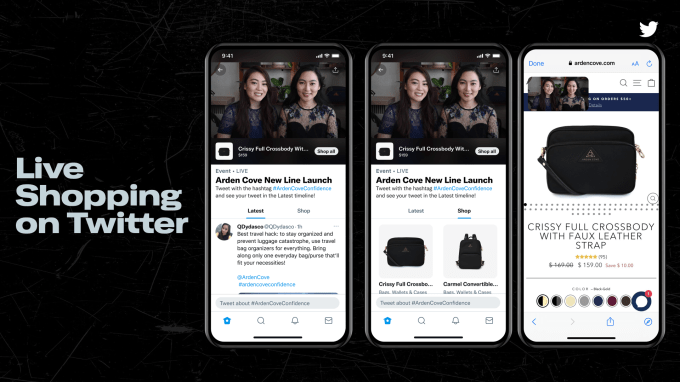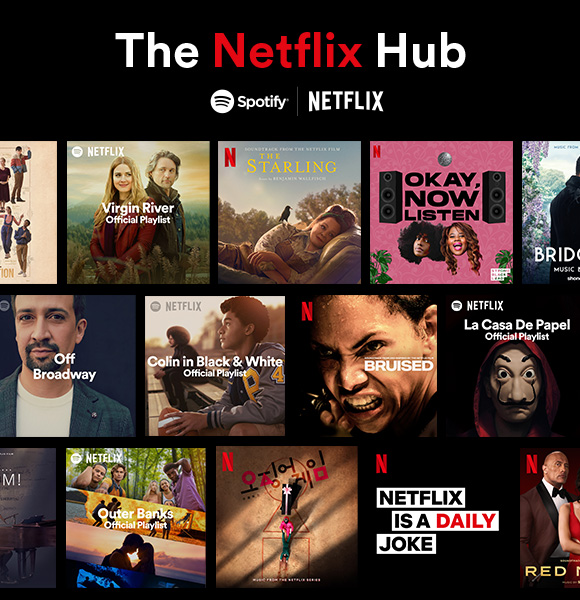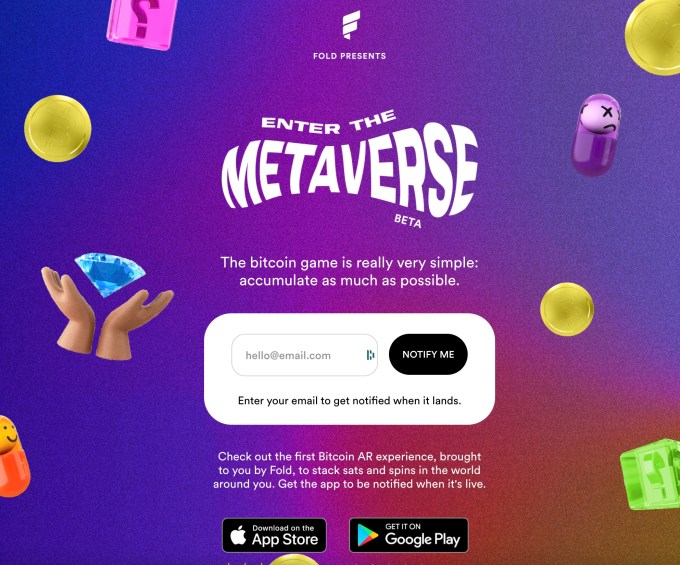Welcome back to This Week in Apps, the weekly TechCrunch series that recaps the latest in mobile OS news, mobile applications and the overall app economy.
The app industry continues to grow, with a record 218 billion downloads and $143 billion in global consumer spend in 2020. Consumers last year also spent 3.5 trillion minutes using apps on Android devices alone. And in the U.S., app usage surged ahead of the time spent watching live TV. Currently, the average American watches 3.7 hours of live TV per day, but now spends four hours per day on their mobile devices.
Apps aren’t just a way to pass idle hours — they’re also a big business. In 2019, mobile-first companies had a combined $544 billion valuation, 6.5x higher than those without a mobile focus. In 2020, investors poured $73 billion in capital into mobile companies — a figure that’s up 27% year-over-year.
This Week in Apps offers a way to keep up with this fast-moving industry in one place with the latest from the world of apps, including news, updates, startup fundings, mergers and acquisitions, and suggestions about new apps and games to try, too.
Do you want This Week in Apps in your inbox every Saturday? Sign up here: techcrunch.com/newsletters
Top Stories
Twitter launches livestream shopping

Image Credits: Twitter
Twitter’s e-commerce initiatives now include livestream shopping, the company announced this week, and Walmart will be the first retailer to test the new platform. The Live Shopping service will take advantage of Twitter’s existing capabilities in livestreaming content and its newer e-commerce features, like the Shop Module for business profiles. During the upcoming livestream event, users will be able to watch the show, tweet to join the conversation from the Live Events page, and browse products on the “Shop” and “Latest” tabs just below the video. When ready to purchase, users will click through to the retailer’s website where the livestream will continue — so they don’t have to miss any of the show.
Walmart was a sensible first partner for the new effort, as the retailer has been increasingly investing in livestream events across social media. Over the past year, it hosted more than 15 livestream events across five platforms, including YouTube, TikTok and its own website, among others.
Its Twitter livestream will focus on Cyber Deals and will kick off on November 28 at 7 PM ET in the U.S. The stream will also be broadcast on Walmart.com/live, and across the retailer’s Facebook, Instagram, TikTok and YouTube accounts.
Twitter says this is the first-ever e-commerce livestream on its platform, but it plans to bring more experiences like this to its customers in the future.
The event will also serve as a means of testing the Twitter user base’s appetite for live shopping, which today often takes place on other social apps, like Instagram and Facebook, on dedicated live commerce platforms and on video services like YouTube and TikTok. But Twitter — a place where users tend to track news, events, pop culture trends, politics and more — hasn’t yet defined itself as a platform. Its overabundance of new features released in the past year feel more like spaghetti being thrown at the wall to see what sticks, instead of a carefully planned roadmap. Twitter today wants to be a home to live audio, creator subscriptions, newsletters, bitcoin tipping, NFTs, private communities and more. But, in reality, only some of these things will actually work. For example, Twitter already had to kill its Stories feature (Fleets) due to lack of traction. And its early days of Super Follow, subscriptions didn’t produce much revenue.
Whether or not it will be able to offer the sort of live commerce experience that resonates with consumers and delivers retailers’ objectives still remains to be seen.
Weekly News
Platforms: Google
- Google’s Play Store is testing out a new “Offers” section that’s different from the existing “Offers & Notifications” page in the app menu. Instead, it’s being used to bring up carousels of deals, limited-time specials and paid apps going free, while the “Offers & Notifications” section had only delivered a heavily curated list of offers, or, if none were available, the option to add a promo code.
- Android 10 is still the most-used version of the Android OS, according to numbers crunched by 9to5Google using data provided through Android Studio. The Android 10 OS has a 26.5% market share, edging out Android 11’s 24.2%. Android 12 hasn’t yet made an appearance in the numbers.
E-commerce and delivery services
- Uber enters the cannabis delivery market. The ride-hailing app announced that users in Ontario, Canada would be able to place cannabis orders on its Uber Eats app following its listing of cannabis retailer Tokyo Smoke on its marketplace. The company had said it would consider expanding cannabis delivery in the U.S. when the legality of doing so is made more clear.
- Mobile advertising and app monetization company Tapjoy announced the launch of a rewarded shopping product, Tapjoy Shopping. The in-app marketplace lets consumers shop from hundreds of brands and retailers, and earn rewards in their favorite apps — like virtual currency — for their purchases. The feature is available in any of the over 10,000 apps that belong to Tapjoy’s network. Tapjoy says shopping offers like this have been increasingly important to mobile publishers after Cost Per Engagement app ads were banned on iOS.
- France has asked search engines and app stores to remove the popular e-commerce platform Wish, which mostly sources products from China-based merchants. The order comes following France’s investigations into fraud, product safety and counterfeit goods on Wish, which found that 95% of toys on Wish didn’t comply with EU regulation, 45% were dangerous, 95% of electronics didn’t comply with regulation and 90% were dangerous.
Augmented Reality

Image Credits: Snap
- Snapchat is bringing AR to holiday shopping. On Black Friday (11/26), the company will launch the Snap Holiday Market, which will feature immersive AR experiences from a half-dozen brand partners, including Amazon Prime Video, Coca-Cola, Hollister, Under Armour, Verizon and Walmart. Each brand will have a dedicated storefront where Snapchat users can browse their products and deal in an AR space designed for each brand. The market will be available from the Lens Carousel and the top of the “For You” tab in the Lens Explorer.
- Snap also plans to offer AR try-on and e-commerce Lenses throughout the holiday shopping season, including those from brands like American Eagle, Fendi, Diork Kaja Beauty, NYX Cosmetics, Shein and Tory Burch.
- The company announced a new AR stat, as well: Snapchat now sees over 6 billion AR Lens plays every day on average, it said.
Fintech
- The German neobank N26 will shutter its U.S. operations. The company’s 500,000 U.S. customers will see their accounts closed on January 11 and will be provided with instructions on how to withdraw their funds. The company said it made the decision to better focus on its core European business and plans to launch to more countries in Eastern Europe, as well as Brazil. The bank had previously shut down its business in the U.K., citing post-Brexit difficulties.
Social
- TikTok hires a new head of diversity and inclusion. The company has hired Shavone Charles, previously of VSCO, Instagram and Twitter, to fill the newly created role. The exec will be LA-based and report to TikTok’s head of comms, Hilary McQuaide.
- Kuaishou, the Chinese maker of the largest short-form video platform after TikTok, reported earnings. Revenue rose 33% as the company reported 20.5 billion yuan ($3.2 billion) for the three months ended September, versus the 20.1 billion yuan average forecast. Total MAUs on its main app reached 573 million, though the company had to shut down its U.S. TikTok rival Zynn earlier this year.
- Twitter made a change to its crowdsourced fact-checking program, Birdwatch, which now allows users to submit their contributions anonymously. Twitter says pilot users “overwhelmingly” requested this feature, particularly women and Black contributors. “Research has shown that aliases have the potential to reduce bias, by putting focus on the content of a note, not the author,” Twitter said, adding that aliases may also “reduce polarization by helping people feel comfortable crossing partisan lines.”
Introducing Birdwatch aliases!
We want everyone to feel comfortable contributing to Birdwatch, and aliases let you write and rate notes without sharing your Twitter username. pic.twitter.com/ROlbpYvT7u
— Birdwatch (@birdwatch) November 22, 2021
- Twitter also updated its iOS app to address the annoying bug (which Twitter must have thought was a feature) where your timeline would refresh automatically, making the tweets you were actively reading disappear from view. After first fixing this issue on the web, Twitter is now rolling it out to iOS users.
- Reddit said it’s shutting down Dubsmash, the short-form video app it acquired late last year, and is integrating video tools into its own app. Reddit said its camera features will now include the ability to change recording speeds and the option to set a timer, similar to other short-form video apps. Users can now also upload videos in landscape, portrait mode and fill, as well as adjust and trim multiple clips. The company is also adding a new editing screen that includes text Stickers, a drawing tool and filters. And users have the option to add voiceovers or adjust the volume directly on the editing screen.
- Social networking app for women Peanut announced a new feature called “Go Global,” which will allow its users to connect with other women around the world, instead of only those nearby. The company said there was demand for the option after it launched its live audio feature Pods. But it could also make Peanut more useful in markets where there just aren’t that many local users to connect with.

Image Credits: Peanut
- The TikTok app ecosystem is huge. Correction! In our last newsletter, we pointed to Sensor Tower’s analysis of the TikTok app ecosystem and mistakenly referred to its “400 or so mobile apps.” The ecosystem saw 400 apps debut in 2020, but in total, there are some 900 apps tied to TikTok to offer things like downloading videos, viewing analytics, tracking hashtags and more. Meanwhile, those 900 apps reached over 1 billion downloads worldwide, not 3 billion. (But TikTok, including its sister app Douyin, have 3.3 billion installs, for comparison.)
Messaging
- Facebook, err Meta, said it’s delaying the launch of end-to-end encryption (E2EE) across its messaging products until 2023 following warnings from child safety campaigns, including the National Society for the Prevention of Cruelty to Children. Such a system would prevent law enforcement and tech platforms from being able to detect child abusers, critics warned, and asked Meta to not proceed until it had a plan in place to prevent child abuse from being undetected on its platform. A former Facebook employee also accused Meta of announcing an absurdly accelerated timeline for E2EE to preempt antitrust action and for “good marketing,” which would have resulted in systems to identify child grooming, sextortion and CSAM distribution operating at less than 10% of the effectiveness of the systems that did inspect content.
- WhatsApp introduced a new feature that would allow its web and desktop users to make their own custom stickers for use in the messaging app. The sticker maker is available from any chat from the paperclip icon, then clicking on “Sticker.”
Streaming & Entertainment
- Apple Podcasts gets a suspicious boost in its App Store ratings. At first, it looked like angry podcast listeners and creators would finally have their say about the app’s decline by downrating Apple’s Podcasts app after Apple, for the first time, made its first-party apps reviewable by the public. But soon thereafter, the previously (embarrassingly) 1.8 star-rated app jumped, in a little over a month, to a 4.6 star rating. What gives? Apple critic Kosta Eleftheriou first noticed the change, and theorizes it’s because Apple is now intelligently prompting users for reviews — which, to be fair, is its right. But many of the reviews seem to be people reviewing the podcasts themselves, not the actual app, which is odd and…a bit suspicious.
- Spotify will drop its shuffle feature on albums, after Adele asked. The streamer would previously default to shuffle mode but Adele had asked Spotify to allow her new album to play in the intended order. The artist tweeted that “our art tells a story and our stories should be listened to as we intended,” when thanking Spotify for the adjustment.
- Music streaming app Tidal introduced direct artist payments, which aims to more equitably distribute funds to artists, compared with the models used by Apple and Spotify. With this user-centric payment system, subscription fees are directly distributed to the artists a user streams.
- TikTok expands its TV footprint. The short-form video app rolled out to more TV devices across the U.S. and Canada with the addition of support for Google TV and Android TV OS, as well as LG and Samsung Smart TVs. Amazon Fire TV was previously supported.
- Spotify tests a TikTok-like feed. The company is the latest to experiment with short-form video in its app as a means of content discovery. Except in Spotify’s case, it’s capitalizing on its existing Canvas video format but presenting it in a new place.
- Spotify also debuted a “Netflix Hub” on its app, which features playlists, soundtracks and podcasts tied to Netlflix shows and movies. The companies had partnered on other initiatives before now, and see the hub as a way to serve their respective audiences with new and, sometimes exclusive, entertainment content.

Image Credits: Spotify/Netflix
Gaming
- Netflix’s new gaming service added two more titles, including the return of Gameloft’s “Asphalt Xtreme.” The streamer recently expanded its service worldwide across iOS and Android, with a handful of titles, including a few casual games and two “Stranger Things”-themed games. Now, it’s added another arcade title, “Bowling Ballers,” and a reboot of Gameloft’s action racing game, “Asphalt Xtreme,” which had officially shut down just in September.
Travel and Transportation
- Telsa’s app experienced an outage that prevented car owners from opening their doors or starting their vehicles. Users reported getting a 500 server error on their iOS app, leading them to tweet at Elon Musk directly for help.
Government & Policy
- The EU passed new rules that may impact major European and U.S. tech companies. The Digital Markets Act’ would make messaging apps interoperable, bans behavioral ad targeting to minors and would fine a company as much as 20% of total global annual sales for breaches of the law. The vote was the final step toward finalizing the rules, expected to come into action in 2022.
- WhatsApp is reorganizing its privacy policy to provide more information on the data it collects and how it’s protected, used and shared across borders, after Irish regulators fined the service a record €225 million ($267 million USD) for breaching EU data privacy rules.
- Instagram head Adam Mosseri is the next big tech rep who will testify before Congress. The exec will appear before lawmakers for the first time, and will answer the senators’ questions about Instagram’s impact on young people following the whistleblower leaks.
- China’s state media reported Tencent has to submit new apps or updates for regulatory inspection through December 31 after Beijing determine Tencent’s apps infringed on users’ rights and interests. Tencent said its apps are still functional and available for download.
- Apple pushed back the feature that would allow U.S. users to store their state’s driver’s license or state ID on their iPhone. The company said Arizona and Georgia would be the first states to get the feature, with Connecticut, Iowa, Kentucky, Maryland, Oklahoma and Utah to follow. The feature was originally set to launch in late 2021, but will now arrive in early 2022.
Security & Privacy
- Privacy-focused search engine DuckDuckGo added to its Android app the ability to block hidden trackers, as part of its new “App Tracking Protection for Android” feature. The new option, now in beta, aims to block data collection from happening inside apps, where third-party trackers are hidden away in the app’s code.
- Apple sued NSO Group, the maker of the nation-state spyware Pegasus. The suit is asking for a permanent injunction that would prevent NSO Group from using any Apple product or service, to “prevent further abuse and harm to its users.”
Funding and M&A
 Family locator and communication app Life360 announced it would acquire lost-item tracking company Tile for $205 million. The deal will see Tile continue to be led as its own brand under its existing CEO CJ Prober. The company says no further changes to the Tile team are currently planned and Prober will also now join the Life360 board of directors. Tile, an Apple critic, claims that its business suffered from the AirTag’s arrival and Apple’s anti-competitive practices. It had recently announced a $40 million debt round to keep the business going.
Family locator and communication app Life360 announced it would acquire lost-item tracking company Tile for $205 million. The deal will see Tile continue to be led as its own brand under its existing CEO CJ Prober. The company says no further changes to the Tile team are currently planned and Prober will also now join the Life360 board of directors. Tile, an Apple critic, claims that its business suffered from the AirTag’s arrival and Apple’s anti-competitive practices. It had recently announced a $40 million debt round to keep the business going.
 Niantic raised $300 million from Coatue at a $9 billion valuation to build the “real-world metaverse.” The Pokémon GO maker is betting on a metaverse that blends the real world with augmented reality, not virtual reality. This month, Niantic unveiled the Lightship AR Developer Kit which offers tools for AR game development. It also recently launched a new AR game, Pikmin Bloom.
Niantic raised $300 million from Coatue at a $9 billion valuation to build the “real-world metaverse.” The Pokémon GO maker is betting on a metaverse that blends the real world with augmented reality, not virtual reality. This month, Niantic unveiled the Lightship AR Developer Kit which offers tools for AR game development. It also recently launched a new AR game, Pikmin Bloom.
 Triller, the one-time TikTok rival turned live events company, has acquired Thuzio, a live events company co-founded by NY Giants’ Tiki Barber. The business had suffered during the pandemic when live events were shuttered. TrillerNet (Triller’s parent) confirmed the deal to the New York Post but didn’t disclose terms.
Triller, the one-time TikTok rival turned live events company, has acquired Thuzio, a live events company co-founded by NY Giants’ Tiki Barber. The business had suffered during the pandemic when live events were shuttered. TrillerNet (Triller’s parent) confirmed the deal to the New York Post but didn’t disclose terms.
 Creator-driven marketplace LTK raised $300 million from SoftBank’s Vision Fund, valuing the business at $2 billion. The company, which was previously branded RewardStyle and LIKEtoKNOW.it, helps social media influencers make their posts shoppable from a centralized marketplace on the web and the LTK app. Brands can also use LTK to connect with creators on marketing campaigns.
Creator-driven marketplace LTK raised $300 million from SoftBank’s Vision Fund, valuing the business at $2 billion. The company, which was previously branded RewardStyle and LIKEtoKNOW.it, helps social media influencers make their posts shoppable from a centralized marketplace on the web and the LTK app. Brands can also use LTK to connect with creators on marketing campaigns.
 Mobile DevOps company Bitrise announced a $60 million round of funding led by Insight Partners to help developers build better mobile apps. Bitrise aims to create an end-to-end platform for mobile development that automates core workflows, shortens release cycles and provides a better understanding of how new pieces of code will affect live apps before their release, and counts over 100,000 developers as users.
Mobile DevOps company Bitrise announced a $60 million round of funding led by Insight Partners to help developers build better mobile apps. Bitrise aims to create an end-to-end platform for mobile development that automates core workflows, shortens release cycles and provides a better understanding of how new pieces of code will affect live apps before their release, and counts over 100,000 developers as users.
 Column Tax, a company that makes income tax software designed to be embedded in other fintech apps, raised $5.1 million in seed funding led by Bain Capital Ventures. The company’s Tax Refund Unlock feature also recently became available to 2 million users of the cash advance app Klover.
Column Tax, a company that makes income tax software designed to be embedded in other fintech apps, raised $5.1 million in seed funding led by Bain Capital Ventures. The company’s Tax Refund Unlock feature also recently became available to 2 million users of the cash advance app Klover.
 Berlin-based same-day grocery delivery app Yababa raised $15.5 million in seed funding led by Creandum and Project A, to expand its service within Germany and across Europe. The service, which currently offers items that cater to Turkish and Arabic communities, plans to expand its product mix in the future.
Berlin-based same-day grocery delivery app Yababa raised $15.5 million in seed funding led by Creandum and Project A, to expand its service within Germany and across Europe. The service, which currently offers items that cater to Turkish and Arabic communities, plans to expand its product mix in the future.
 Coinbase acqui-hired the team behind BRD, a crypto wallet startup that first launched its mobile wallet back in 2014. BRD’s co-founders say nothing will be changing for BRD users for the time being, but users will have the option to migrate to Coinbase’s wallet in 2022.
Coinbase acqui-hired the team behind BRD, a crypto wallet startup that first launched its mobile wallet back in 2014. BRD’s co-founders say nothing will be changing for BRD users for the time being, but users will have the option to migrate to Coinbase’s wallet in 2022.
 TabTrader raised $5.8 million in Series A funding for its mobile app that aggregates crypto exchange data. The app has more than 400,000 active users, with a particularly strong presence in Europe and Asia. Investors include 100X Ventures, Hashkey Capital, Spartan Capital, SGH Capital, SOSV and Artesian Venture Partners.
TabTrader raised $5.8 million in Series A funding for its mobile app that aggregates crypto exchange data. The app has more than 400,000 active users, with a particularly strong presence in Europe and Asia. Investors include 100X Ventures, Hashkey Capital, Spartan Capital, SGH Capital, SOSV and Artesian Venture Partners.
Downloads
Fold AR (Fold)

Image Credits: Fold
Of course, the metaverse has bitcoin? I mean, for sheer rubbernecking purposes we have to check out Niantic’s latest app. The Pokémon GO maker has weirdly teamed up with a bitcoin rewards and payments app, Fold, to launch an AR bitcoin mining experience called Fold AR. Currently in beta, Fold AR lets users earn bitcoin and other in-app benefits by exploring their physical surroundings using augmented reality. Unlike in Pokémon GO, where users seek out rare creatures, Fold users will collect bitcoin and other prizes, including those that increase their bitcoin cashback rewards. The company believes the game will appeal to bitcoin newcomers and existing cryptocurrency fans alike and will drive users to Fold’s app — where the in-app AR experience lives. Before the AR launch, Fold was focused on its bitcoin cashback experience where users connect their credit card, their Fold card or a bitcoin wallet, in order to purchase gift cards and receive cash back in the form of BTC. Fold AR rolls out on November 23 to select users and will add more users over time.
via https://AiUpNow.com November 27, 2021 at 01:51PM by Sarah Perez, Khareem Sudlow,

